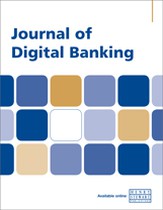Big Data in the financial industry: Applications, potential and regulatory approaches
Abstract
In the financial industry, the volume and complexity of data is growing exponentially. These vast amounts of data can potentially offer valuable insights that can contribute to process optimisation, risk management and decision making. Many companies in the industry, however, face the challenge of how best to leverage this data. Despite a general awareness of the significance of Big Data, there is often uncertainty surrounding the optimal use of this data for practical applications. This paper summarises the existing real-world applications, especially those with implications for financial stability, and highlights the specific benefits of Big Data in the financial sector. The paper comments on the role and implications of Big Data regulation from the perspective of a regulatory authority. It shows that artificial intelligence (AI)-driven Big Data processing has expanded from customer interfaces to banks’ back ends. Numerous use cases exist along the value chain within the financial sector, including at central banks. Big Data offers both opportunities and risks for the financial system as a whole. The paper thus also emphasises the importance of striking a balance with regard to regulating AI. Overall, the paper argues that the effective use of Big Data has the potential to enable the financial industry to cultivate better efficiency in business practices and ensure greater resilience in the financial system.
The full article is available to subscribers to the journal.
Author's Biography
Joachim Wuermeling , PhD, is, since January 2024, professor of digital finance at the European School of Management and Technology (ESMT) in Berlin. From 2016 to 2023 he served as a member of the Executive Board of the Deutsche Bundesbank, where he was responsible for, among other things, data and statistics. He is former State Secretary and Member of the European Parliament (CSU), and he held various management positions in the finance and insurance industry as well as in politics, most recently as Chairman of the Board of Directors of the Association of Sparda Banks. Dr Wuermeling has been a guest lecturer at various universities since 1995. The University of Potsdam awarded him an honorary professorship in 2011.
Nils Müller is an economist-statistician in the staff unit of the Directorate General Data and Statistics at the Deutsche Bundesbank, where he focuses on international statistical standards, coordination and data governance. Prior to this, he completed a trainee programme at the Bundesbank. Previously, he gained experience in financial services at various auditing firms. Mr Müller holds an MSc in management with a focus on accounting and finance from Ruhr University, Bochum.
